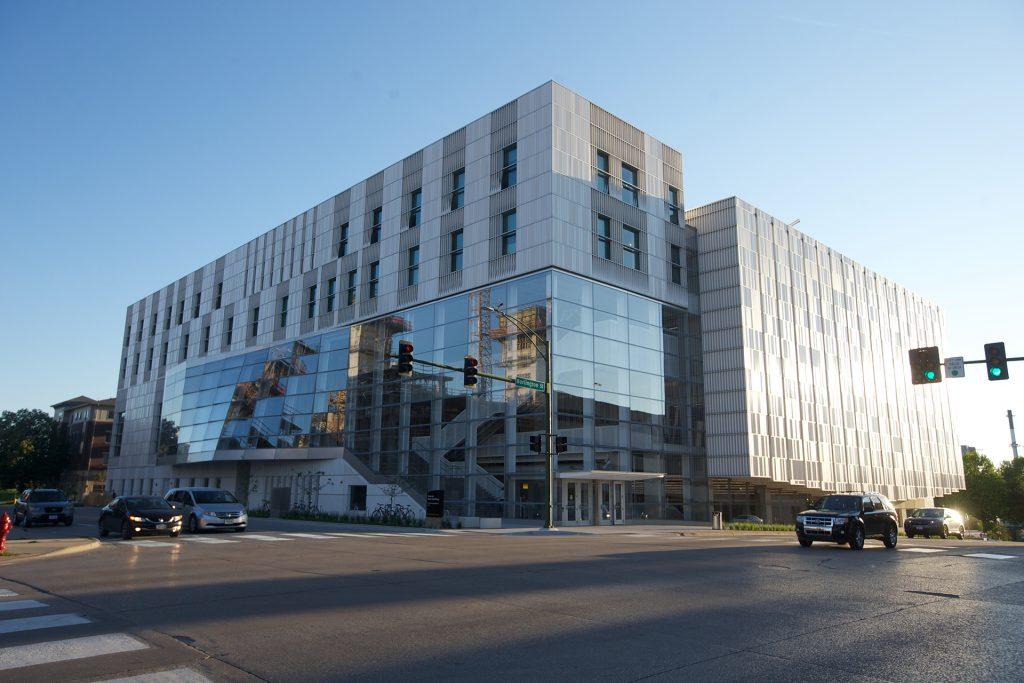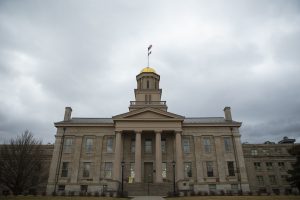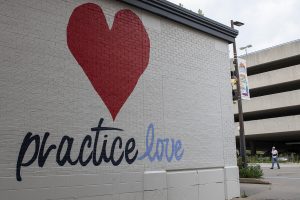Opinion: Online instruction amid COVID-19 proves a challenge for music majors
Studying music amid COVID-19 comes with unexpected challenges.
The University of Iowa School of Music is being moved to the newly built Voxman Building. The building is located at 95 East Burlington Street.
May 6, 2020
When I chose to double major in violin performance and journalism, I knew it was a challenge I was ready to face. Little did I know second semester would throw a curveball that I never thought I would encounter: studying music online.
As a music-performance major, a majority of our instruction comes from rehearsals, performances, and weekly lessons because we are learning to play repertoire and skills needed in a professional setting.
Because it is nearly impossible to host an effective Zoom call with 50 musicians playing individually, members of performance groups such as the Symphony Orchestra, Choirs, and Bands have lost their remaining concerts of the spring season. Being able to perform and have the opportunity to rehearse in a group setting is a key component of an aspiring musician’s education.
Not only are we pushed to play our best, but we also inspire each other by showing our different interpretations of a passage or our diverse emotions attached to a certain piece. Playing in a group setting broadens our perspectives and techniques that we will need for future auditions, performances, and repertoire.
While weekly lessons are continuing on Zoom, it is not nearly the same as in-person instruction. Many complications have risen such as poor sound quality, internet-connection issues, and lagging software performance.
RELATED: UI School of Music and West Music partner to deliver pianos to students
With the closure of the Voxman Music Building and its access to practice rooms, students are also finding it difficult to find a quiet space or the opportunity to have a lesson. There are many students who rely on the practice rooms and offices because their home, dorm, or apartment limits the ability to have a quiet place to practice and without disturbing neighbors or others living with them.
In addition, many of the courses function more effectively with in-person instruction. For example, theory-based courses are best taught through hands-on instruction with the professor in a classroom setting, and piano classes unfortunately were cut short when students lost access to the School of Music pianos.
However, it is not just the physical setting that is lacking. A significant component in music is human connection. Personally, I find my inspiration through my day-to-day experience whether it is interacting with my friends or walking in downtown Iowa City. While I am still able to draw my creativity from past experiences, the component that I miss the most is sharing music with others. Being able to play with my colleagues and perform for an audience always reminded me that I am not just playing for myself, but rather playing for others and serve a bigger purpose.
While I am grateful that I am still receiving instruction and know the School of Music is doing its best to provide us a high-quality music education, I look forward to the day when we are able to return to school and have the opportunity to connect and share music with my peers and professors.





